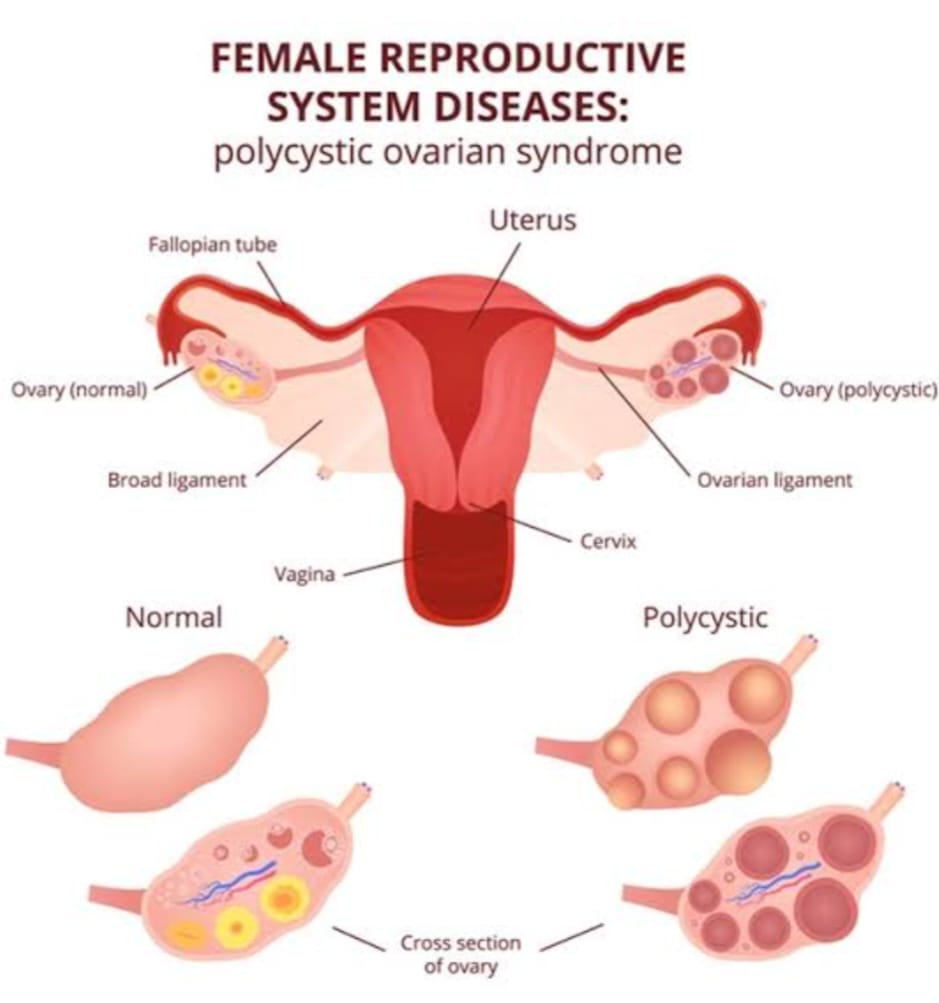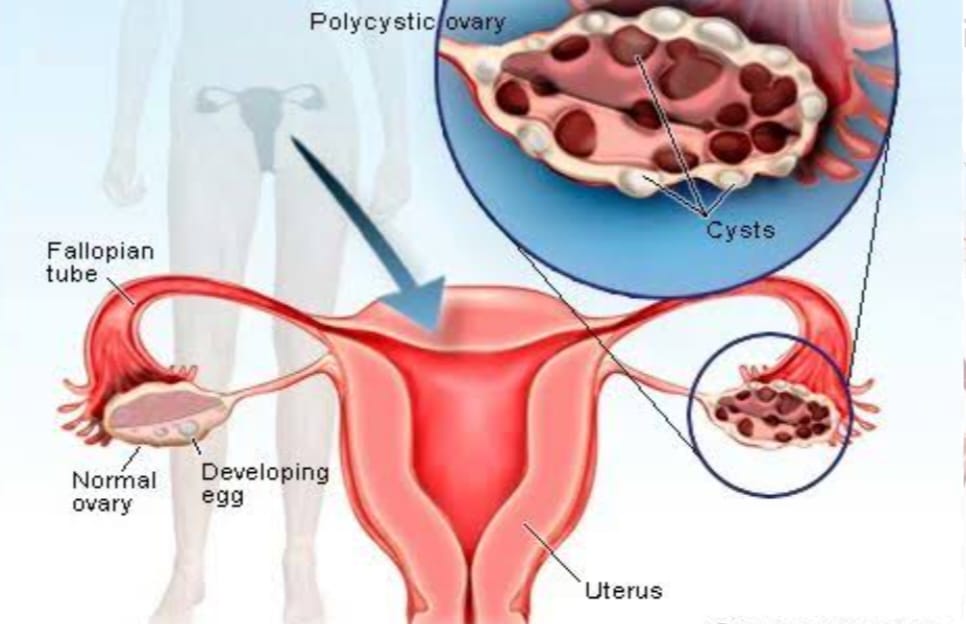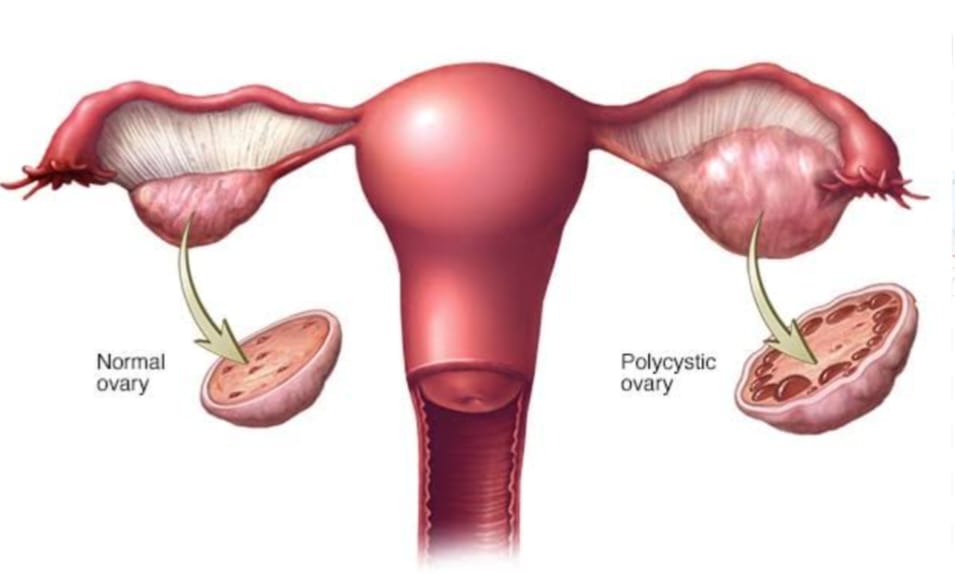Polycystic Ovary Disease
Polycystic ovarian disease (PCOD) has multiple small cysts in the ovaries. These cysts occur when the regular changes of a normal menstrual cycle are disrupted. The ovary is enlarged; and produces excessive amounts of androgen and estrogenic hormones. This excess, along with the absence of ovulation, may cause infertility. Other names for PCOD are polycystic ovarian syndrome (PCOS) or the Stein-Leventhal syndrome.
PCOD does run in families. Several genes contribute to the pathogenesis of PCOD. Many of these genes are related to insulin resistance with elevated fasting blood insulin levels. The high levels of androgenic hormones interfere with the pituitary ovarian axis, leading to increased LH levels, anovulation, amenorrhea and infertility.
Young diabetic women treated with insulin are at special risk of PCOD. The amount of insulin injected by insulin-dependent or insulin-requiring diabetics is far in excess of what the body produces naturally.
Obesity is a common part of PCOD and many of these women are also insulin-resistant. When a woman is insulin-resistant, her fat cell does not respond normally to the insulin in the blood stream. Weight gain in itself can result from high serum insulin levels.
The Symptoms of Polycystic Ovary Syndrome
Absent or irregular periods
Weight gain
Acne (spotty skin)
Hirsutism (excessive hair growth on the face and body)
Difficulties getting pregnant
Thinning of scalp hair
Diagnosis
1. History of Irregular menstrual cycles, which are unpredictable and can be very heavy
2. Hirsutism, (excessive facial and body hair) as a result of the high androgen levels
3. Vaginal ultrasound, which shows that the ovaries are enlarged; the bright central stroma is increased; and there are multiple small cysts in the ovaries. These cysts are usually arranged in the form of a necklace along the periphery of the ovary
4. Blood levels of hormones reveal a high LH (luteinizing hormone) level; and a normal FSH (follicle stimulating hormone); and elevated levels of androgens
Treatments Available for Polycystic Ovary Syndrome
There is no cure available in allopathy for polycystic ovary syndrome. Treatment tends to be focused on relieving the symptoms of the condition..
Homeopathic medicines which act at root level can bring back deviations of hormonal system back to normal and in many cases reduces the need for exogenous hormones with their side-effects and complicating surgical procedures. Moreover, with this hormonal harmony, chances of conception increase significantly.
- The homeopathic remedies that work in synchrony
- Bring symptomatic relief from PCOD
- Re-arrange the hormonal axis of the body
- It stimulates the pituitary-hypothalamus-axis
- The products coax the ovaries to resume normal ovarian functions, by dissolving the cysts
- They restore the balance of the hyperactive glands - It works on cellular, mental, emotional and energetic levels to eliminate all root causes of an ailment .
Diet & Nutrition in PCOS or PCOD
A vegetarian diet is recommended especially a diet rich in foods that nourish the liver.
Beets
Carrots
Dark-green leafy vegetables
Lemons
Homeopathic medicines are highly effective and strongly recommended.



